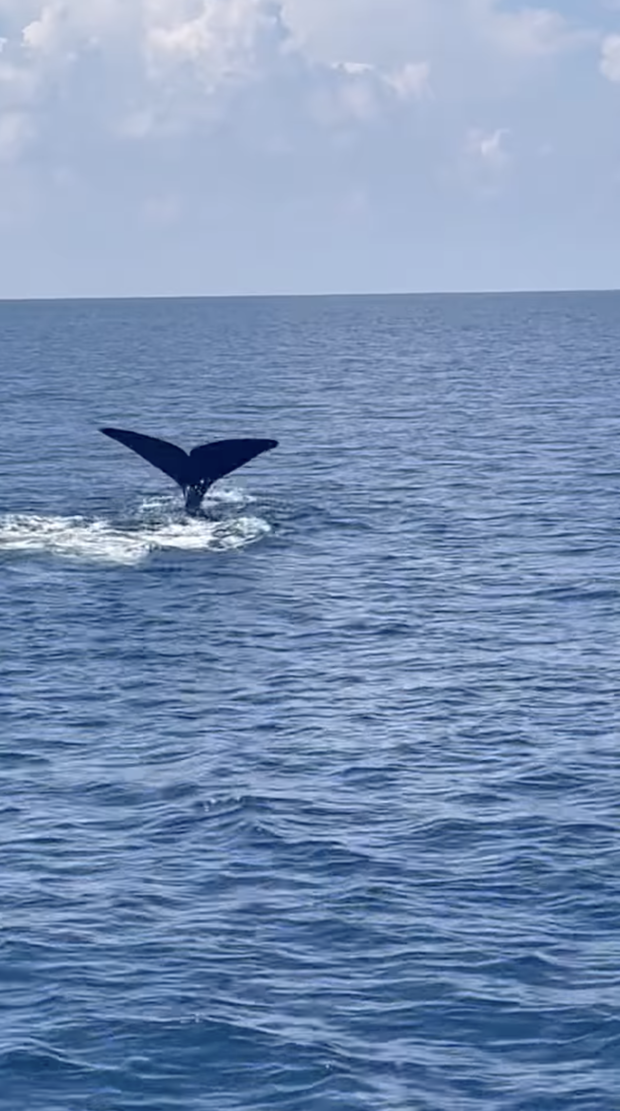U.S. Coast Guard spots endangered whales off Louisiana
Correction: This story has been updated after Coast Guard officials identified the whales spotted in the Gulf of Mexico as sperm whales. They had previously identified them as critically endangered Rice's whales.
Officers with the United States Coast Guard captured video footage over the weekend of endangered whales, after encountering three of the creatures off the Louisiana coast in the Gulf of Mexico.
The footage shows three sperm whales, officials said. Previously the Coast Guard said they were critically endangered Rice's whales, enormous members of the baleen whale family that have been seen in the northeastern Gulf of Mexico.
The U.S. Coast Guard station in Venice posted on social media a 16-second video of the whales swimming nearby. The video was removed later on Tuesday from the U.S. Coast Guard Venice station's Facebook page.
Coast Guard officers from the agency's Venice station spotted the whales while on a Living Marine Resource patrol, an operation meant to manage and protect fish and other marine resources, in the Mississippi Canyon, a spokesperson for the U.S. Coast Guard said, according to the Miami Herald. What they initially believed to be large pieces of floating debris turned out to be three whales.
Sperm whales have been listed as endangered under the Endangered Species Act since 1970, according to NOAA.
The Mississippi Canyon is a sprawling underwater canyon located in the north-central part of the Gulf of Mexico, south of Louisiana.
According to NOAA Fisheries, researchers observed a Rice's whale blow in the area in July, and eventually steered their vessel closer to the whale until it was floating adjacent to their boat in the water. Tony Martinez, the field chief scientist on the survey, said in a statement that being able to capture such detailed photographs of the Rice's whale and observe the sounds it makes, is critical to understanding the endangered species, which in turn helps to protect the population.




